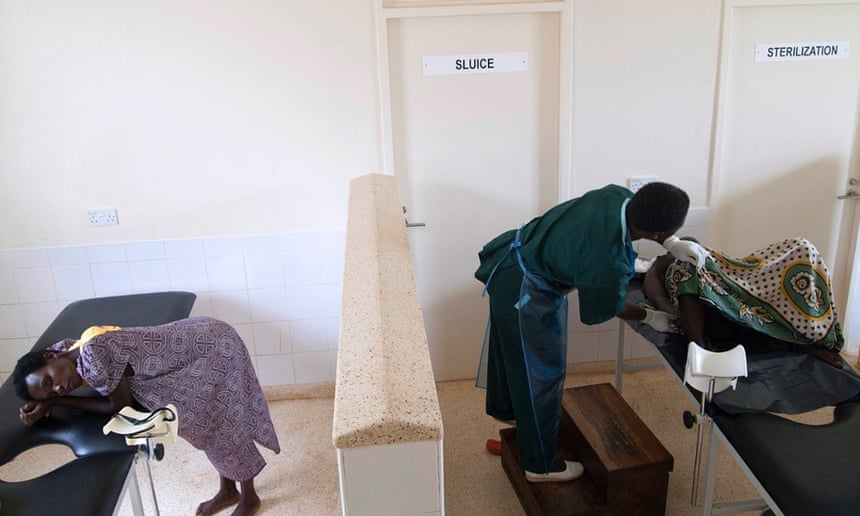At the paediatric and childcare department of Uganda’s Mulago national referral hospital, a memo advertises vacancies for nurses in a private clinic. Two points are highlighted: attractive salary and accommodation.
Another memo from the hospital management apologises for the delay of January salaries for medical staff. Delayed or insufficient salaries are not new in Uganda’s public hospitals. Medical workers in rural areas wait for as long as three months without pay. Accommodation or transport costs are a rarity.
Private clinics and health centres in other countries capitalise on this to poach physicians and specialists from public hospitals.
Yet in a bizarre twist, the Ugandan government is actively encouraging doctors and nurses from its own hospitals to work abroad.
Last year, the Foreign Ministry advertised opportunities for 263 health workers to go to Trinidad and Tobago. According to the advertisement, Uganda wants to “further accelerate the existing excellent bilateral relations” with the Caribbean country. At least 400 health workers, including senior specialists from government hospitals, applied to leave.
The Institute of Public Policy Research Uganda (IPPR-U), a local thinktank, has gone to the high court to stop the export of health workers and compel the government to encourage them to stay.
Justinian Kateera, IPPR-U’s executive director, said: “While the government is bent on exporting health workers, thousands of Ugandans are dying daily. Sixteen women die daily giving birth, but the government can’t see that as problematic.
“This [Ugandan case] is going to set precedents on the continent. We want governments to know that it is their responsibility to retain key professionals,” Kateera said.
A ruling is expected on 2 March. Defeat for the government could mean it would have to drop its collaboration with Trinidad. But a government win could open the door for more medics to leave Uganda.
Sarah Opendi, state minister of health for primary care, said the government was aware of the inadequate number of health workers and admitted that it was finding it hard to retain senior medical staff: “It is unfortunate that someone has gone to court. The truth is that we don’t have the means to fill the gaps [in our health system]. We don’t have enough resources.”
The medical brain drain is not restricted to Uganda – the problem is common across sub-Saharan Africa: a 2011 study found, for example, that 77% of physicians trained in Liberia were working in the US.
The consequences in Uganda are clear: the doctor to patient ratio (pdf) was estimated at 1:24,725 in 2013, with a nurse to patient ratio of 1:11,000. The World Health Organisation (WHO) recommends one physician per 1,000 people. Trinidad, with 1.3 million people, has a doctor to patient ratio 12 times better than Uganda, with 35 million people. WHO ranks Trinidad’s health system at 68 and Uganda’s at 149.
Each year, about 320 medical students graduate from Ugandan universities, more than in any other east African state. In the public health system, a doctor can expect to earn on average 700,000 shillings ($245) a month, compared with Sh3.8m earned by a civil servant and Sh2.4m by an accountant.
In Kampala, the cost of living is not cheap. Rent for three-bedroom house in a good neighbourhood costs about Sh450,000 a month. A fairly cheap kindergarten charges Sh750,000 per pupil per term (three months). All this is before electricity, water, transport and food costs are included.
It is perhaps little wonder that after completing their studies, most students relocate to Rwanda, Kenya, South Africa and the global north, where they are paid much more.
Among the medical professionals who are understood to want to leave Uganda for Trinidad are 20 of the 28 registered radiologists in the country, and four of the six urologists. About 180 midwives also want to go.
Robert Ssentongo, a senior plastic surgeon at Mulago hospital, paints a grim picture of how the brain drain has constrained Uganda’s healthcare system. “Three-quarters of the people I graduated with 20 years ago are not in Uganda. They are all working in western countries. Health workers are not taken seriously here, let them go.”
The departures and consequent lack of staff are not the only issue crippling Uganda’s hospitals. Low pay and lack of incentives are increasingly forcing those staff who stay to supplement their income outside the public system: it is estimated that on any given day, 37% of public-sector health workers skip work to earn money elsewhere, mostly moonlighting as consultants in private hospitals.
And the situation will worsen if nothing is done to stem the flow of departures, Kateera says. “We are not against health workers. We want better [conditions] for them. The government must deal with the broader policy question. Deal with brain drain. Incentivise health workers to stay in their country.”
The government has allocated 8% of the budget to health this financial year, below the 15% recommended by the Abuja declaration in 2000.
Anaesthetist Dr Fred Musana, who has applied to leave, said: “It is not illegal for government to post health workers out of the country. It has done it before.
“I have worked in Rwanda and Zimbabwe. I think it is actually beneficial for the country. There are a lot of things we share as medical professionals and we can’t do that if we remain cocooned here in Uganda. I call it very simplistic when someone says taking workers to a foreign country is [a] brain drain.”
